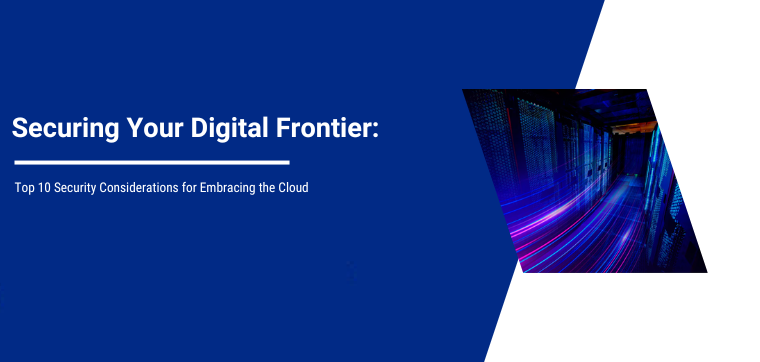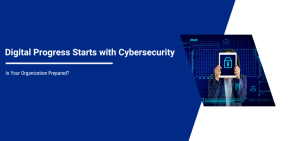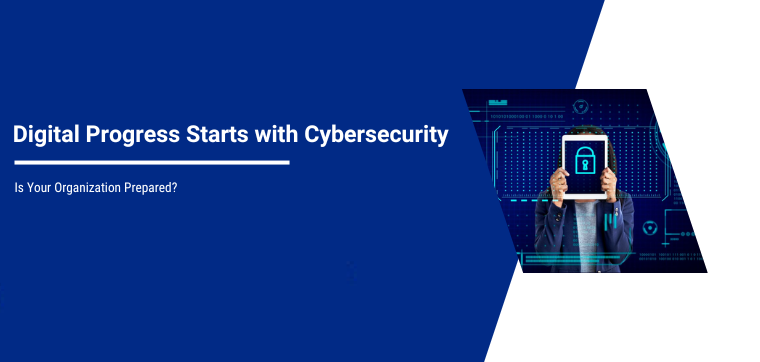Kiran Babu, Director - Solution Sales at Noventiq
With the rise of cloud computing, businesses are increasingly embracing cloud technologies to enhance their IT infrastructure and reduce costs. However, this shift brings along new security risks and challenges that organizations must address to maintain a robust security posture. To assist businesses in navigating these challenges, Microsoft has identified the top 10 security considerations for cloud adoption.
1. Identity and Access Management: Ensure users have the right level of access to cloud resources and authenticate and authorize their identities. Implement multi-factor authentication and limit administrative privileges.
Consider this scenario: As a business owner, you aim to grant your employees access to specific cloud resources based on their roles. To achieve this securely and prevent unauthorized breaches, you can implement multi-factor authentication and restrict administrative privileges. By doing so, only authorized individuals will have access to sensitive data, ensuring the utmost protection and security of your cloud environment.
2. Network Security: Secure network traffic between cloud resources and the internet, as well as between different cloud resources within the same environment. Use virtual private networks, firewalls, and intrusion detection and prevention systems.
For example, if you operate an e-commerce platform, the security of your network traffic becomes paramount to safeguard your customers' payment information. To achieve this, you can deploy virtual private networks and robust firewalls. By implementing these measures, you create a strong defense that effectively prevents cybercriminals from intercepting and compromising valuable customer data. Rest assured, with these security measures in place, you can confidently protect your customers' payment information and maintain their trust in your platform.
3. Data Protection: Safeguard sensitive data stored in the cloud by encrypting data in transit and at rest, implementing access controls, and regularly backing up data.
If you are a healthcare provider, storing patients' medical records in the cloud requires strict compliance and protection of patient confidentiality. To achieve this, essential security measures must be implemented. Encrypting data both at rest and in transit, implementing access controls, and performing regular backups are vital steps to ensure the utmost security and privacy of patients' sensitive information. By taking these precautions, you can confidently meet regulatory requirements, safeguard patient data, and maintain the trust of your valued patients.
4. Asset Management: Keep track of all resources in the cloud environment, including virtual machines, databases, and applications. Maintain an accurate inventory to manage security risks and ensure proper configuration and maintenance.
Say, for a growing tech startup managing numerous virtual machines and databases in the cloud, effective asset management is crucial. It helps you keep track of your resources, ensuring proper configuration, maintenance, and minimizing the risk of potential vulnerabilities. By efficiently managing your assets, you strengthen your security posture and create a secure environment for your cloud operations, allowing your startup to flourish with confidence.
5. Vulnerability Management: Regularly scan the cloud environment for vulnerabilities, apply patches and updates, and stay up to date with the latest security measures to reduce the risk of successful attacks.
Suppose you're operating a popular online service where security is paramount. To ensure the safety of your platform, it's crucial to regularly scan your cloud environment for vulnerabilities and promptly apply patches and updates. By doing so, you effectively thwart cybercriminals from taking advantage of any known weaknesses. This proactive approach fortifies your overall security, guaranteeing that your online service remains well-protected. With these robust measures in place, you can offer your users a safe and secure experience, building their trust and confidence in your platform.
6. Incident Response Planning: Develop a well-defined incident response plan to quickly respond to security incidents such as data breaches or malware infections. Minimize the impact of an attack and ensure a swift recovery.
Imagine this: Your cloud storage falls victim to a phishing attack, resulting in a compromise of your data; therefore, having a well-defined incident response plan becomes invaluable. This plan allows for a quick and coordinated response, effectively minimizing the impact of the breach and enabling you to promptly restore services. By proactively preparing for such incidents, you can effectively mitigate risks, protect your data, and ensure uninterrupted operations in the face of security threats.
7. Business Continuity and Disaster Recovery Planning: Prepare for major disruptions that could impact operations by implementing backup and recovery procedures, maintaining redundant systems, and regularly testing disaster recovery plans.
Picture this: Your business heavily depends on cloud infrastructure and a natural disaster strikes your primary data center. However, with a well-prepared disaster recovery plan that includes regular backups and redundant systems, you swiftly minimize downtime and restore operations seamlessly. This proactive approach ensures business continuity, allowing you to quickly resume serving your customers without any significant interruptions. By implementing a robust disaster recovery strategy, you safeguard your business from the impact of unexpected events and maintain a resilient operation in the face of adversity.
8. Compliance and Assurance: Ensure the cloud environment meets regulatory requirements and industry standards. Demonstrate compliance to build trust with customers and reduce the risk of legal and financial penalties.
For example, being a financial institution, strict adherence to regulatory standards like PCI DSS is of utmost importance. Demonstrating compliance not only fulfills legal obligations but also establishes trust with customers, assuring them that their financial data is securely handled. By prioritizing and showcasing compliance, you create a solid foundation of trust and confidence, setting your institution apart as a reliable and secure custodian of sensitive financial information.
9. Cloud Governance and Management: Establish policies and procedures for managing and maintaining the cloud environment, assigning responsibilities, and implementing effective change management practices.
As a business owner overseeing a complex cloud environment with various teams and stakeholders, establishing clear policies, assigning responsibilities, and implementing effective change management practices are key. These measures ensure a well-governed and secure cloud environment, fostering collaboration, minimizing risks, and enabling smooth coordination. By proactively implementing these strategies, you streamline operations, enhance security, and maintain a strong foundation for successful cloud management within your organization.
10. Security Monitoring and Management: Continuously monitor the cloud environment for security threats, use security information and event management (SIEM) tools, implement log management and analysis, and review security policies and procedures regularly.
Consider this example: Running an e-commerce website requires proactive security measures. By implementing advanced monitoring tools, analyzing logs, and reviewing policies, you can stay ahead of potential cyber threats. This proactive approach protects your customers and valuable business data, ensuring a secure and trustworthy online environment.
Implementing these top 10 security considerations for cloud adoption enables businesses to confidently navigate the cloud journey. It ensures the confidentiality, integrity, and availability of data while providing a secure environment for customers. This approach establishes a strong security foundation, ensuring compliance and effective management of the cloud environment.
About Noventiq
Noventiq, a global leader in digital transformation and cybersecurity, helps businesses secure their digital frontier and tackle cloud security risks. Partnering with us ensures data confidentiality, integrity, and availability, creating a secure environment for customers. Our security offerings drive compliance, mitigate threats, and efficiently manage the cloud.
As a result, businesses can focus on core operations with peace of mind, knowing their digital assets are protected. With our tremendous expertise and experience, we're the go-to provider for navigating cloud adoption complexities and safeguarding digital assets in an ever-evolving threat landscape.
Contact us at india@noventiq.com






